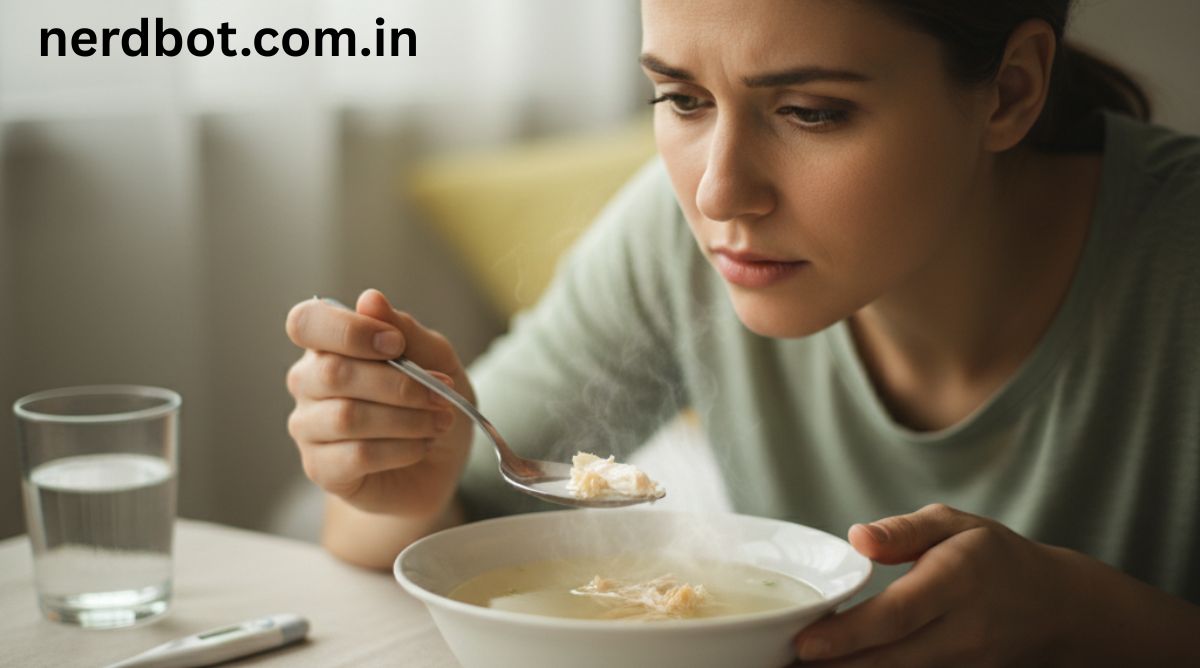Chicken pox, medically known as varicella, is a highly contagious viral infection caused by the varicella-zoster virus. It typically affects children but can also occur in adults, often with more severe symptoms. The condition is marked by an itchy skin rash with red spots and blisters, accompanied by fever, fatigue, and loss of appetite. During recovery, dietary choices play a vital role in supporting the immune system, reducing inflammation, and promoting healing. Among the many dietary concerns, one common question that arises is: can we eat egg during chicken pox?
This article aims to provide a comprehensive answer to this question by examining the nutritional profile of eggs, their benefits, risks, cultural beliefs, and recommendations from health experts regarding their consumption during chicken pox.
Understanding Chicken Pox and Its Dietary Requirements
Chicken pox weakens the immune system, making the body more susceptible to secondary infections and complications. Nutrition plays a critical role in:
- Enhancing immune response.
- Speeding up wound healing.
- Reducing inflammation.
- Preventing secondary bacterial infections.
The ideal diet during chicken pox should be:
- Soft and easy to digest.
- Rich in vitamins and minerals.
- Hydrating.
- Non-irritating to the skin and stomach.
Many people turn to natural or traditional remedies and follow strict dietary restrictions during chicken pox. One such belief is avoiding eggs, spicy foods, and non-vegetarian items. But are these restrictions based on science?
Nutritional Profile of Eggs
Eggs are one of the most nutrient-dense foods available. They contain:
- High-quality protein: Essential for tissue repair and immune cell production.
- Vitamins: B2 (riboflavin), B12, A, D, E, and folate.
- Minerals: Iron, phosphorus, selenium, and zinc.
- Healthy fats: Including omega-3 fatty acids.
- Choline: Important for liver function and brain development.
These nutrients are particularly beneficial during illness, as the body requires additional resources to combat viral infections and heal from skin damage caused by blisters.
Benefits of Eating Eggs During Chicken Pox
1. Boosting Immune Function
Eggs are rich in vitamin A, vitamin D, selenium, and zinc—all of which support immune system activity. This is especially important during chicken pox, as the body is fighting a viral infection.
2. Aiding Tissue Repair and Healing
Protein is vital for repairing damaged skin and tissues. The high biological value of egg protein (containing all essential amino acids) makes it an excellent choice during recovery.
3. Combating Fatigue
Eggs provide a good amount of energy and nutrients to help fight fatigue and general weakness that commonly accompany chicken pox.
4. Easy Preparation and Digestion
When boiled or lightly scrambled without spices, eggs are soft and easy to digest—ideal for someone experiencing sore throat or mouth ulcers (which sometimes accompany chicken pox).
Traditional Beliefs vs Scientific Evidence
In many cultures, especially in India and Southeast Asia, there is a traditional belief that eggs should be avoided during chicken pox. The reasons cited often include:
- Eggs are considered “heaty” or “hot” foods in Ayurveda or traditional Chinese medicine.
- They may exacerbate inflammation.
- Eggs might cause allergies or aggravate skin rashes.
However, modern medical science does not support these claims for the general population. Most of the concern about “heaty” foods lacks concrete scientific backing and is based more on anecdotal experiences.
That said, there are scenarios where eggs might not be advisable during chicken pox, particularly in people with specific allergies or sensitivities.
When to Avoid Eggs During Chicken Pox
Although eggs are generally safe and beneficial, they should be avoided under the following conditions:
1. Egg Allergy
Some individuals have an allergy to eggs, which can worsen skin irritation or cause respiratory symptoms. Consuming eggs in such cases can trigger an immune response, complicating the recovery process.
2. Poor Cooking or Improper Hygiene
Undercooked or contaminated eggs may harbor bacteria like Salmonella, leading to foodborne illnesses. A person with chicken pox already has a compromised immune system, making them more vulnerable to additional infections.
3. High-Fat or Spicy Egg Preparations
Fried or spicy egg preparations can irritate the digestive system. It’s essential to prepare eggs in a simple, bland manner—boiled or lightly scrambled without spices or fats.
4. Cultural or Personal Beliefs
In some households, avoiding eggs is a deeply held traditional practice. In such cases, if the patient or caregiver is uncomfortable including eggs, it’s better to find alternative sources of protein (like lentils, tofu, or dairy).
Best Ways to Include Eggs During Chicken Pox
If there is no allergy or contraindication, eggs can be a valuable part of the diet during chicken pox. Here are some tips for safe and effective inclusion:
1. Boiled Eggs
Hard-boiled or soft-boiled eggs are the safest and easiest way to consume eggs during illness. They are gentle on the stomach and nutrient-rich.
2. Scrambled Eggs (without spices)
Use a small amount of ghee or butter and scramble the eggs without any chili or masala. This preparation is light and digestible.
3. Egg Soup
Mixing a lightly whisked egg into vegetable broth can make a nourishing soup that hydrates and nourishes.
4. Omelette (Plain)
A plain omelet made with minimal oil and no spices can also be included, but should be consumed only if the patient can digest slightly heavier food.
Alternatives to Eggs (For Vegetarians or Those Avoiding Eggs)
If the patient chooses not to consume eggs, it’s important to ensure they get enough protein and nutrients from other sources:
- Dairy Products: Milk, curd (yogurt), and paneer are good sources of protein.
- Legumes and Pulses: Moong dal, masoor dal, and other lentils are protein-rich and easy to digest.
- Tofu and Soya: Plant-based alternatives that are high in protein.
- Nuts and Seeds: Almonds, walnuts, flaxseeds, and chia seeds (if tolerated).
General Dietary Guidelines During Chicken Pox
- Hydration: Drink plenty of water, coconut water, and herbal teas to prevent dehydration.
- Soft Foods: Porridge, khichdi, mashed potatoes, and soups are easy on the stomach.
- Avoid Spicy and Oily Foods: They can irritate the digestive system and worsen skin inflammation.
- Include Fruits and Vegetables: Especially those rich in vitamin C and antioxidants like oranges, papaya, carrots, and spinach.
- Limit Sugar and Processed Foods: High sugar can suppress immune function and delay healing.
Medical Opinion: What Do Doctors Say?
Most healthcare professionals agree that eggs can be consumed during chicken pox, provided there is no allergy or dietary restriction. Pediatricians and dietitians emphasize the importance of high-protein foods in supporting recovery.
However, if any gastrointestinal issues, allergic reactions, or discomfort are observed after eating eggs, it is advised to stop consumption and consult a doctor.
Conclusion
To answer the central question: Can we eat egg during chicken pox? — Yes, we can, as long as there is no egg allergy or personal/cultural restriction against it. Eggs offer a high-quality source of protein and essential nutrients that aid in boosting immunity, repairing skin tissue, and reducing fatigue during chicken pox. However, the method of preparation is crucial. Boiled or lightly cooked eggs without spices are ideal, while fried or spicy egg dishes should be avoided.
As with any illness, listening to the body’s needs, maintaining hydration, and consulting a healthcare provider for personalized dietary advice are essential for a smooth recovery.










